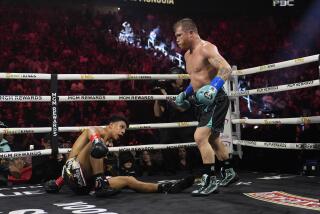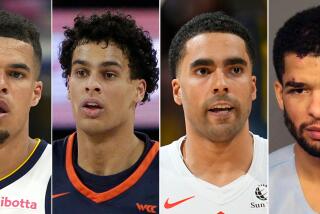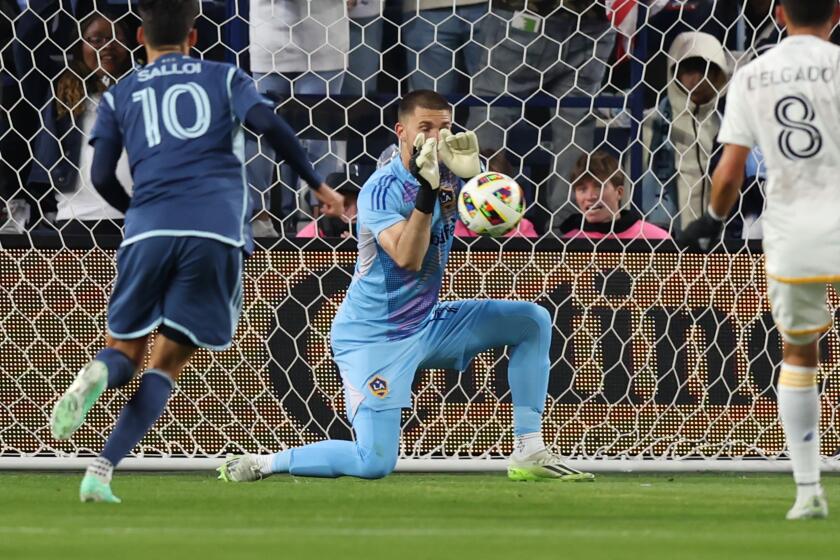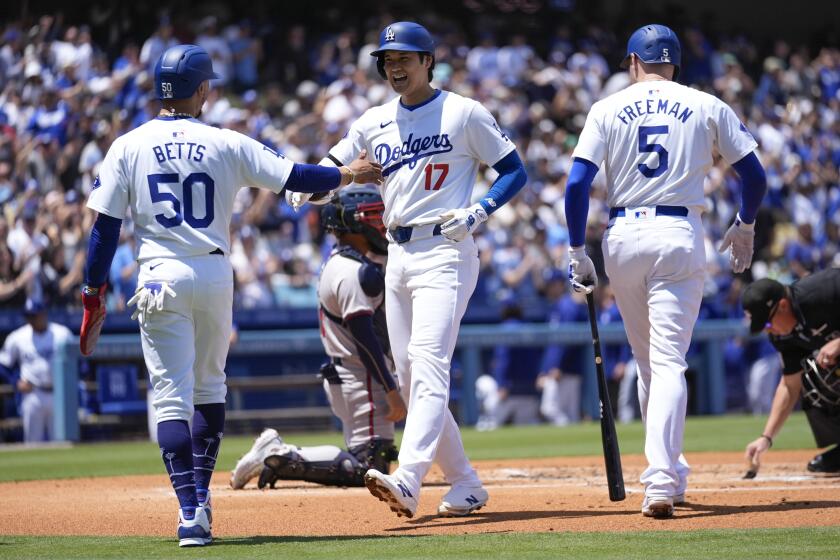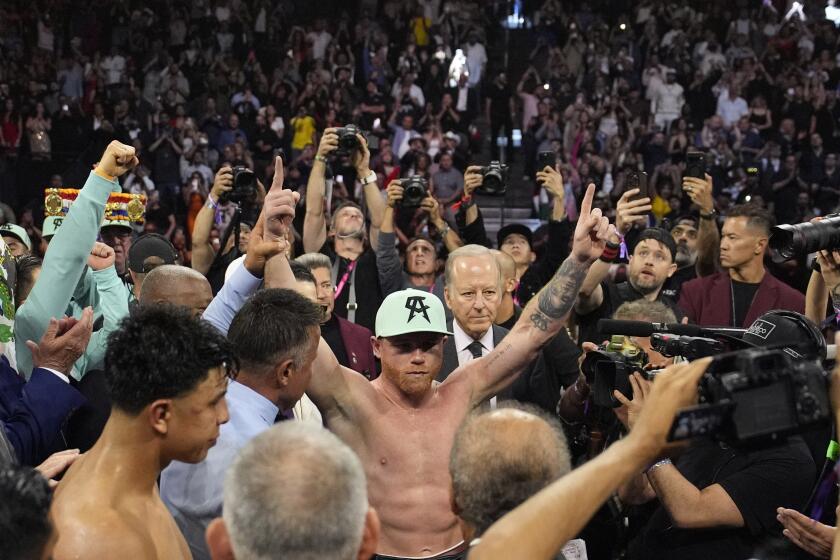ATTITUDE ADJUSTMENT : Michibata Stands Poised to Advance a Few Rungs on Tennis Ladder
Tennis player Glenn Michibata has been to the Wimbledon final four times and the final of thS. Open six times. But each time he has made it to the championship round of those most prestigious of tournaments, it has exacted a heavy toll.
Tickets to those things are really expensive.
But seriously folks, Michibata, 27, who lives in Woodland Hills, is an outstanding tennis player. He is ranked 120th in the world and has played in four Wimbledons and six U. S. Opens. He was eliminated in the first round in all but one of his appearances, and in that one he advanced to the second round.
He has played Boris Becker at Center Court in the U. S. Open in Flushing Meadow, N. Y., and he has battled Mats Wilander on the same court. And if you think that being ranked 120th isn’t any reason to strap on the party hat, consider that there are an estimated 60 million people in the world who play tennis on a regular basis.
In other words, Michibata would consistently defeat approximately 59,999,881 of the world’s regular tennis players.
Those other 119, however, are starting to bother him. Because he knows he’s much better than 120th.
“The top 10 players in the world have something that separates them from all the rest of us,” Michibata said. “But all the rest, from 11 on down to 120, there isn’t that much difference. Becker is different because he’s so strong. He’s an animal. Yannick Noah is different because he’s such a great athlete. And Connors is different because he has that drive, that determination to win.
“But the rest of us are very similar. Our techniques are nearly identical. Sound, solid technique.”
Michibata knows, however, that something must separate the 15th- and 25th-ranked players from the 100th and 120th. And he even knows what it is.
“It’s their mental approach to the game,” he said. “The guys who consistently do well are the guys who use their technique, their strokes, the most efficiently. They know when to attack and when to volley. They know how to play a match instead of just hitting balls back over the net.”
And in that category, Michibata realizes that he has been lacking.
“For so many years my problem has been that I was so negative on the court,” he said. “I was always down on myself, berating myself for hitting a ball wide or into the net. I just never believed in myself. When I played against someone who was equal to me in skills, I felt like I was playing against two opponents. I was playing him and me. When the moments came in a match when I needed the big point, the crucial point, I didn’t come through.
“And it was always my attitude. I would always be thinking, ‘Your forehand is so bad, no way you can win this point.’ ”
But he sees great improvement in his mental approach to the game in the past few months and believes he can rise quickly in the rankings, perhaps even as high as 48th, the position he attained early in 1986.
“I can feel myself getting much better at it,” said Michibata, who lost in the opening round of the Volvo Open at UCLA on Monday.
“Now, when I get to those critical situations in a match, I don’t automatically say to myself, ‘Don’t lose this point.’ Now, I say to myself, ‘Go after this point and get it.’ I can feel my head starting to clear. I feel more aware of the match and what I have to do instead of waiting for the chance to put myself down.”
Michibata was raised in Toronto and excelled at tennis from the age of 7. He became one of the best junior players in Canada, but he said he didn’t take the game seriously until he moved with his family to Orange County when he was a teen-ager. He played one year at University High in Irvine and then accepted a tennis scholarship to attend Pepperdine.
As a sophomore at Pepperdine he was the No. 1-ranked collegiate player in the country. He lost in the NCAA semifinals that year and lost in the championship match of the NCAA tournament as a junior. As a freshman and senior he made it to the quarterfinals. He turned professional in 1983, the year he left college, and three years later found himself ranked among the top 50 in the world.
And while he hasn’t been able to climb that high since, and might not again, he says it all still seems like a very pleasant dream to him. Despite not playing very well last year, he earned nearly $70,000 on the Grand Prix tour.
“The competition is so much better now than when I was ranked 48th,” he said. “I know I’m a better tennis player now, ranked 120th, than I was when I was ranked 48th. I hope I can get back into the top 50 within the next six months to a year, but if not, I won’t mind too much.
“As long as I keep improving and can get inside the top 100, I’ll be happy. I still get to travel the world and play tennis and get paid for doing it. It’s like being on a paid vacation all the time. If I never get inside the top 100 again, it’s still been a pretty great life.”
More to Read
Get our high school sports newsletter
Prep Rally is devoted to the SoCal high school sports experience, bringing you scores, stories and a behind-the-scenes look at what makes prep sports so popular.
You may occasionally receive promotional content from the Los Angeles Times.

